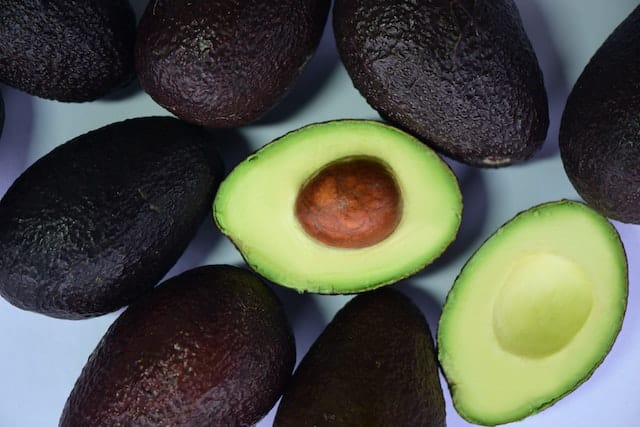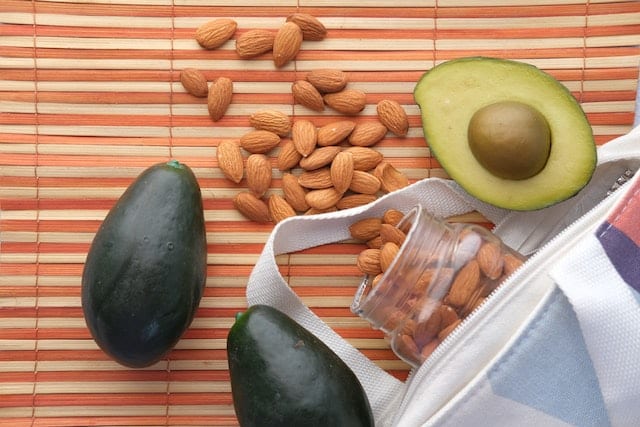Maintaining a nutritious and balanced diet is crucial for keeping our bodies healthy and functioning properly. Our bodies require a variety of nutrients to stay nourished and free from illness. It’s important to provide our bodies with the right amount of food each day to ensure optimal health and productivity. By taking care of our bodies, we can also promote a healthy mind and overall well-being.
Table of Contents
What is Nutrition?
Celebrated Astro Strategist cum Business Astrologer Hirav Shah says, “Nutrition refers to the supply of materials, especially food, required by the cells and organisms of our body to stay alive. According to human medicine and science, nutrition is a science or practice of consuming essential foods.”
Autotrophic nutrition: Certain bacteria and green plants can produce food from various inorganic substances by using light from the sun. In this mode, organic substances are created through carbon dioxide and water.
Heterotrophic nutrition: In this kind of nutrition, the food is obtained by feeding on other organisms.
Nutrients and their types: A discussion on nutrition is never complete with a focus on nutrients. A Nutrient is a substance that is used by an organism to grow, survive and reproduce. The demand for dietary nutrients intake applies to plants, fungi, protests, and of course, animals.
Nutrients can be further divided into two categories. They are micronutrients and macronutrients. Macronutrients are required in large quantities, while micronutrients are needed in small amounts for the human body.
Daily intake levels of nutrition: Experts in diet and nutrition have drafted a guide on the daily intake of nutrition. According to that guide, a balanced diet for an average human adult must include the following nutrient elements. This ideal type chart can be referred to while making a diet plan for an adult individual. Specific figures may vary, though dependent upon differences at the ground level.
Nutrients: Quantity per day
- Energy: 8700 kilojoules
- Protein: 50 grams
- Fat: 70 grams
- Saturated fatty acid: 24 grams
- Carbohydrate: 310 grams
- Sugar: 90 grams
- Salt: 2.3 grams
- Dietary fiber: 30 grams
Guide to nutrient-rich meal plan: An ideal diet should include fewer calories and many vitamins and minerals. There should also be fewer amounts of sugar, starch, sodium, and bad fats in the food.
Our body requires vitamins and minerals for health, which are known as micronutrients. They are essential to keep your body nourished and healthy. Micronutrients are also necessary to prevent chronic diseases.
Some fast facts about nutrition
A typical human body generally needs seven significant kinds of nutrition.
Micronutrients are essential, but one should consume them in small amounts.
Not all nutrients produce energy, such as fiber and water, but they are still beneficial for the body.
Vitamins are essential organic compounds that a body cannot synthesize.
We present a chart through which you will have a clarified idea about what food items you should include in your diet to get nutrition-rich meals all day.
Nutrient Food sources
- Calcium No fat dairy products and dairy substitutes, leafy greens, broccoli, sardines
- Potassium Nuts, raisins, fish, bananas, cantaloupe, spinach, other dark green veggies
- Magnesium Black beans, almonds, spinach
- Fiber Dried beans, whole grain food, apples, strawberries, beans, seeds, carrot, raspberries, other colorful vegetables
- Vitamin A Milk, carrot, eggs, cantaloupe, sweet potato
- Vitamin C Tomatoes, kiwi, strawberries, oranges, broccoli, green and red bell peppers
- Vitamin E Leafy green veggies, nuts, seeds, spinach, whole grain food
Hirav Shah explains that all the foods mentioned above are great choices to maintain the balance of minerals, vitamins, and other essential nutrients in your diet.
When it comes to whole grain food, people often get confused about what should be their choices, though whole-grain foods are essential to have a nutrition-rich diet. To choose the right kind of whole-grain edibles, you should remember that barley, quinoa, buckwheat, whole corn, and oatmeal are very easy yet great choices.
A good number of people are also confused about whether seafood is nutritious. Well, actually, they are. If you eat mussels, scallops, and shrimps in their fresh and organic form without adding much oil and unnecessary spices, they provide a significant number of nutrients to your body.
Why should we consume nutrition-rich food: Well, the answer is simple. People who eat more fruits and vegetables as part of their regular diet have reduced the risk of chronic ailments. Vegetables, especially leafy greens, provide nutrients vital for the maintenance of our healthy bodies.
Nutrition Checkup
A Nutrition Check-Up gives an intensive review of your lab results, Lifestyle analysis, anthropometrics, and an examination of your eating routine to evaluate for deficiencies, abundances, and dangers for diseases.
After that, in your Preventive Nutrition Check-Up, you are provided with guidance to optimize your food habits for a healthier lifestyle.
Benefits of nutrition
The benefits are manifold. The discussion of how nutritious food helps our immune system could be a vast one. But here is the gist of the matter.
A healthy diet keeps severe ailments, including cardiac problems, at bay.
Certain types of cancers, one of the deadliest diseases of modern times, can be prevented by consuming specific nutritious food daily.
Fiber-based food prevents issues such as obesity, type diabetes.
Therefore, no meal should be complete without a whole fruit.
Having vegetables regularly maintains the calorie intake percentage low for the body. This gives long-term benefits.
Potassium-based edibles are also excellent sources of nutrition as they protect us from low blood pressure, maintain our bone density, and prevent kidney stones and other significant ailments.
For the most successful people globally, 2022 is a thing of the past, and 2023 has already begun… Has it for YOU?
Who doesn’t want to experience success in business?
But are you truly doing the right things to get there?
Can you honestly say that you are taking ACTION on your goals?
If you hesitated AT ALL answering any of those questions, you need to shift your focus to doing what’s necessary to get the success you desire…
How a Balanced Diet Can Boost Your Career Success
Maintaining a nutritious and balanced diet can have a significant impact on your overall well-being, including your career success. Here are several ways in which a healthy diet can boost your professional performance:
- Increased Energy and Focus: A balanced diet provides your body with the necessary nutrients to function optimally. By fueling your body with nutritious foods, you can experience increased energy levels, improved mental clarity, and enhanced focus. This can help you stay alert and perform better in your work tasks, leading to improved productivity and efficiency.
- Enhanced Cognitive Function: Certain nutrients, such as omega-3 fatty acids, antioxidants, and vitamins, are essential for brain health. Consuming a diet rich in fruits, vegetables, whole grains, lean proteins, and healthy fats can support cognitive function, memory retention, and problem-solving abilities. It can also reduce the risk of age-related cognitive decline, allowing you to stay mentally sharp throughout your career.
- Improved Mood and Stress Management: A healthy diet plays a role in regulating neurotransmitters and hormones that influence mood and stress levels. Consuming balanced meals that include whole grains, lean proteins, fruits, vegetables, and healthy fats can help stabilize blood sugar levels and promote emotional well-being. This can lead to improved stress management, reduced feelings of anxiety, and an overall positive mood, allowing you to handle work-related challenges more effectively.
- Enhanced Immune Function: Proper nutrition supports a strong immune system, reducing the frequency and severity of illnesses. When you prioritize a balanced diet that includes a variety of fruits, vegetables, whole grains, lean proteins, and immune-boosting nutrients like vitamin C and zinc, you’re less likely to experience frequent sick days or prolonged periods of illness. This can positively impact your attendance, reliability, and overall performance in the workplace.
- Long-Term Health Benefits: A nutritious diet is associated with a reduced risk of chronic diseases such as obesity, diabetes, cardiovascular conditions, and certain cancers. By maintaining a healthy weight and minimizing the risk of these health conditions, you can avoid potential disruptions to your career due to illness, medical appointments, or the need for extended leave.
- Increased Resilience and Stamina: A well-balanced diet that includes lean proteins, whole grains, and adequate hydration can contribute to increased physical resilience and stamina. This can help you handle demanding work schedules, long hours, and high-pressure situations with greater ease. Improved physical endurance can also support your ability to engage in professional development activities, networking events, or travel opportunities without feeling excessively fatigued.
To maximize the benefits of a nutritious and balanced diet for your career success, ensure you:
- Consume a variety of whole foods, including fruits, vegetables, whole grains, lean proteins, and healthy fats.
- Stay hydrated by drinking sufficient water throughout the day.
- Minimize the consumption of processed foods, added sugars, and unhealthy fats.
- Plan and prepare your meals in advance to make healthier choices easier.
- Listen to your body’s hunger and fullness cues, avoiding excessive overeating or undereating.
- Seek professional guidance from a registered dietitian if you need personalized advice or have specific dietary requirements.
Remember, a healthy diet is just one component of overall well-being. It’s important to combine it with other self-care practices, such as regular exercise, stress management techniques, and sufficient rest, to optimize your career success and overall quality of life.
Final Words
Let’s have a quick look at a Summary of what is essential to our body. Although each of the 7 major groups of nutrients performs different and unique functions in our body, they are all essential because they work together and contribute to our good health. …
- Carbohydrates.
- Proteins.
- Fats.
- Vitamins.
- Minerals.
- Dietary fibre.
- Water.
Maintaining a nutritious and balanced diet is essential for a healthy body and mind. Our body requires a variety of nutrients to function properly, including carbohydrates, proteins, fats, vitamins, minerals, dietary fiber, and water. Each nutrient group plays a unique role in our overall health, and they work together to keep us free from ailments and productive in our daily lives. It is our responsibility to nourish our bodies with the right amount of food every day to ensure optimal health and well-being.






























